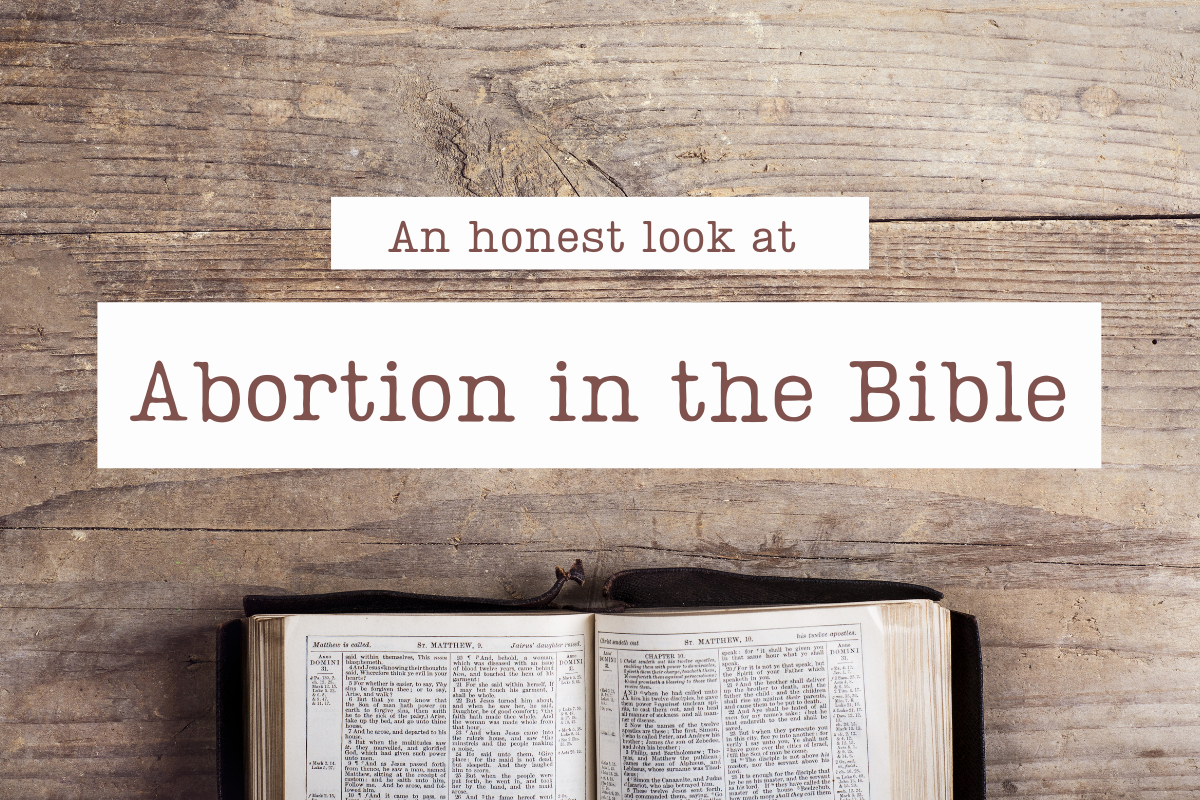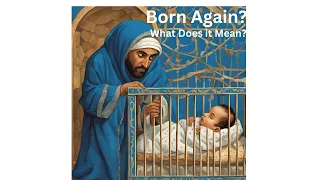Abortion: A topic that has been dividing America and the world for that matter for decades. Even with the passing of the controversial Roe v Wade it has remained a highly charged topic. Therefore, in this article we’re going to look at abortion and the Bible. What does the Bible say about abortion?

There is a lot of talk about abortion these days.
With the appointment of conservative judges on the Supreme Court and the ruling on Dobbs vs Jackson in 2022, it has become an even more heated topic.
Since the Roe VS Wade ruling by the Supreme Court in 1973, from 1973 to 2022, an estimated 63.46 MILLION abortions have been performed. This is startling!
Here are some more statistics:
Annual Abortions in the U.S.
- Peak: ~1.6 million abortions in 1990.
• 2020: ~930,160 abortions (Guttmacher [Gootmarker] Institute).
• 2021: 625,978 abortions reported to the CDC (in reporting states).
• 2024: ~1,038,100 clinician-provided abortions in states without bans (Guttmacher—[Gootmarker]).
• 2024 broader estimate: ~1.14 million total abortions (Society of Family Planning.
There will be more startling statistics to come.
But needless to say, there has been a lot of talk about abortion these days. Political campaigns have been fueled by it, and everybody has an opinion. But I have yet to hear someone say, what does God think about abortion, and what does He express in His Word?
However, as Christians, there’s no need for debate as we have the ultimate source for guidance—God and His Word the Bible.
What does God say about Abortion?
Born Again Christians sincerely believe the Scriptures to be the written Word of God—all of it. To dismiss God’s Word is to dismiss God Himself. Therefore, it is prudent to seek and obey His Word in all matters, including abortion.
The Bible never specifically uses the word abortion. However, numerous teachings in Scripture make it abundantly clear what God’s position is on abortion and the sacrificing of children. Let’s look at some examples.
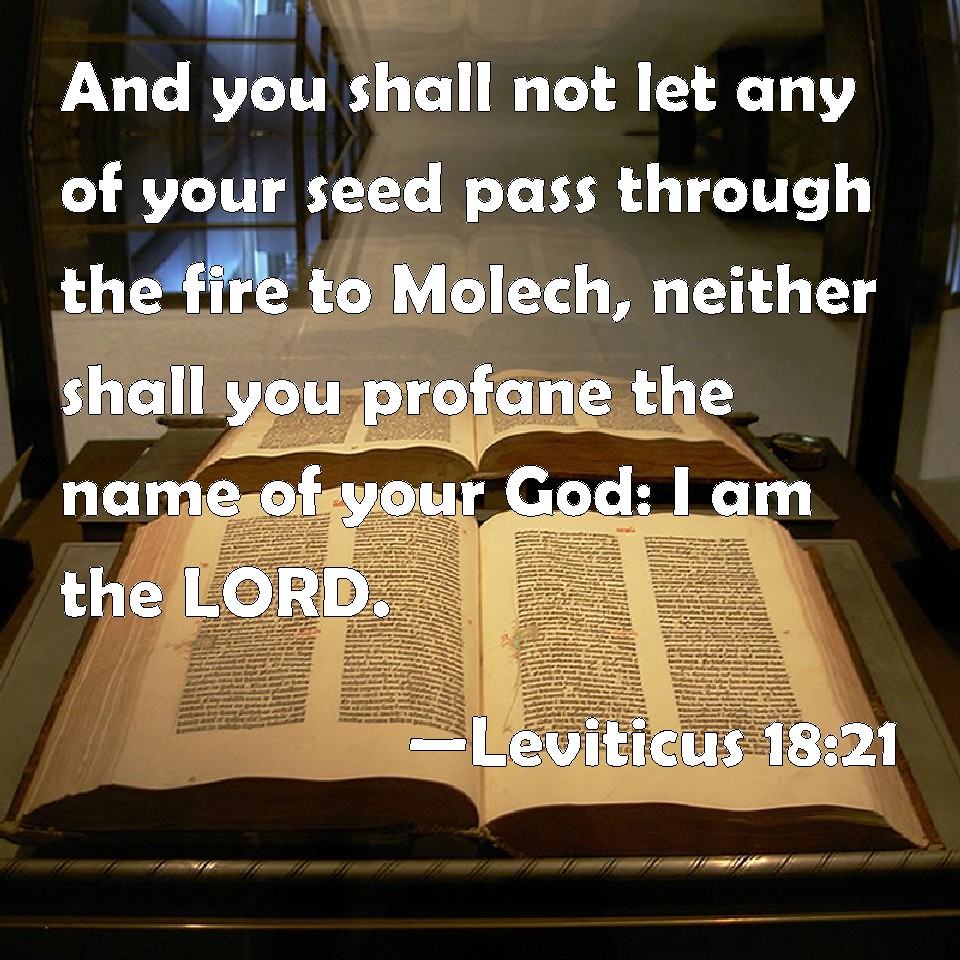
The book of Leviticus contains the Law of God handed down to Israel. In Lev 18:21, it reads:
21 “‘Do not give any of your children to be sacrificed to Molech, for you must not profane the name of your God. I am the Lord. NIV
The Idolatrous nations sacrificed their children to their pagan idol gods, as part of worship, in this case, Molech, the god of human sacrifice. God specifically forbade His people from engaging in such practices. To do so was to profane or disrespect His name.
However, as time went on, the Israelites turned away from God and practiced the ways of the foreign nations and suffered the consequences. 2 Chron 28:1-6
28 Ahaz was twenty years old when he became king, and he reigned in Jerusalem sixteen years. Unlike David his father, he did not do what was right in the eyes of the Lord.
2 He walked in the ways of the kings of Israel and also made cast idols for worshiping the Baals.
3 He burned sacrifices in the Valley of Ben Hinnom and sacrificed his sons in the fire, following the detestable ways of the nations the Lord had driven out before the Israelites.
4 He offered sacrifices and burned incense at the high places, on the hilltops and under every spreading tree.
5 Therefore the Lord his God handed him over to the king of Aram. The Arameans defeated him and took many of his people as prisoners and brought them to Damascus. He was also given into the hands of the king of Israel, who inflicted heavy casualties on him.
6 In one day Pekah son of Remaliah killed a hundred and twenty thousand soldiers in Judah — because Judah had forsaken the Lord, the God of their fathers. NIV
We see that King Ahaz did not follow the ways of the Lord but performed detestable sacrifices, including sacrificing his children, and He paid a heavy price.
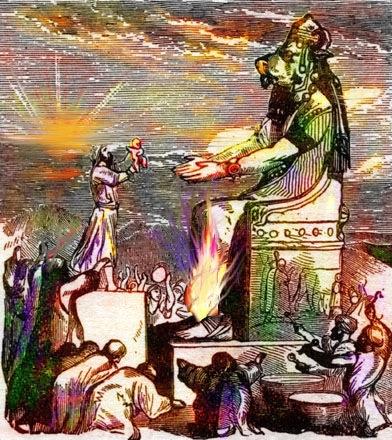
Now, we may not throw our children into fire these days, but we are sacrificing them for material reasons for the majority of the time, and that is idolatry. Anytime we choose something (in this case, abortion) that is against God’s will is sin and idolatry (Eph. 5:3-5). Instead of trusting God for our needs, we take matters into our own hands. This solution only leads to disaster.
Abortion defined
Let’s look at what abortion is. Abortion is defined as a medical procedure used to end a pregnancy and cause the death of the fetus. [Merriam-Webster Dictionary Thesaurus] So we see that it causes the death of a fetus. A fetus is defined as: a human being or animal in the later stages of development before it is born. [Merriam-Webster Dictionary Thesaurus] Later stages in this case are after eight weeks; prior to that, it is an embryo. Therefore, abortion is the termination of a human being. It is a deliberate, premeditated termination of life. This fits the definition of yet another word: murder. Murder is defined as: The unlawful, premeditated killing of one human being by another. [The lexicographers at Oxford Dictionaries]
Now that abortion has been defined, what does God say about abortion? Ex 20:13 reads:
13 “You shall not murder. NIV
This is the sixth of the Ten Commandments, the basis of God’s law. For the Scriptural modernists, New Testament Scripture reads in Matt 5:21:
21 “… Do not murder, and anyone who murders will be subject to judgment.” NIV
This is what God’s Word says about murder.
Many disagree that abortion is murder. The common rebuttal to this determination is: a fetus is not a human being, or it’s not a person yet, so it’s not murder. So, let’s take a serious look at when life begins.
When does life Begin Scientifically?
Prior to the 1973 U.S. Supreme Court decision that allowed abortion on demand, developing embryos were considered unborn persons. Now, even a fetus that can survive on its own outside its mother’s womb can be aborted, under certain medical circumstances. This demonstrates that we do not consider an unborn child to be a true human being.
So, the question becomes, is a fetus a human? Is it something else? Biologically speaking, human life begins at conception. When the female’s egg and the male’s sperm join together, they combine and create a new string of DNA that is personalized and unique. DNA is coded information, the blueprint for the new human’s growth and development. The child’s genetic makeup is already complete. Its gender has already been determined, along with its height, hair, eye, and skin color. The only thing the embryo needs to become a fully functioning being is time to grow and develop. No more genetic material needs to be added; the fertilized egg in the womb is as human as the mother in whose womb it dwells. The only difference between a fetus and any one of us is one of age, location, and level of dependence. Therefore, when a mother aborts this process of fetal development, she is destroying a unique life.
When Does Life Begin Medically
Dr. Joseph DeCook, executive director of the American Association of Pro-life Obstetricians and Gynecologists, a group of about 2,500 members, said an embryo is a living human being at the moment of fertilization. “There’s no question at all when human life begins,” said DeCook, a retired obstetrician-gynecologist. “When the two sets of chromosomes get together, you have a complete individual. It’s the same as you and me, but less developed.” “Pregnancy begins when the embryo is implanted in the uterine wall,” he said. This is a medical definition from a medical professional. So there isn’t much to add to that! The fact is, you don’t get a baby without a fetus. This isn’t rocket science! No fetus, no baby. If you terminate the fetus, you kill the baby.
When does life begin Biblically?
Last, but certainly not least, the Bible clearly points to conception as the beginning of human life.
Let’s look at some examples: In Judg. 16:17 Samson said: “…for I have been a Nazarite unto God from my mother’s womb…” Here, Samson, a judge appointed by God, refers to his unborn state as having already been what God planned him to be—a Nazirite.
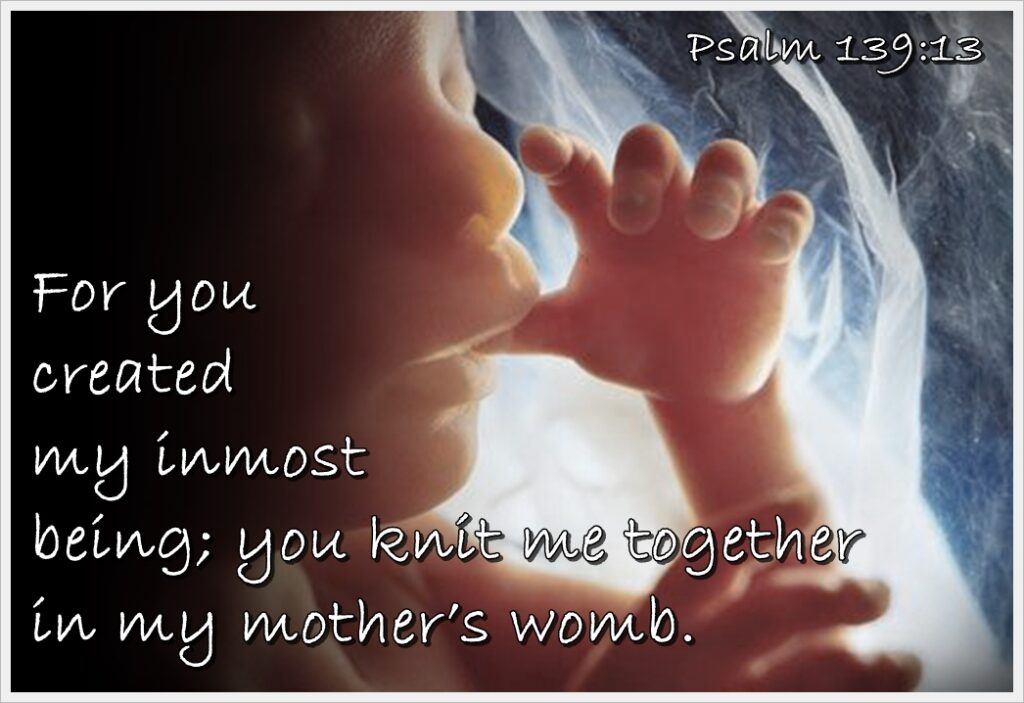
In Ps 139:13, David said: “For thou hast possessed my reins: thou hast covered me in my mother’s womb.” Again, we see acknowledgment of life in the womb. David refers to himself as a person in the womb. Then he says, in verse 16: “Thine eyes did see my substance, yet being unperfect; and in thy book all my members were written, which in continuance were fashioned, when as yet there was none of them.” Here, David continued this thought by saying that God had all of his days planned out for him while he was still in the womb. Again, this evidence points to personhood beginning at conception, rather than at the moment of birth.
We see that God had a similar plan for the life of Jeremiah before he was born. In Jer. 1:5, God said: “Before I formed thee in the belly I knew thee; and before thou camest forth out of the womb I sanctified thee, and I ordained thee a prophet unto the nations.” The next example is a passage. Ex 21:22-25:
22 If men strive, and hurt a woman with child, so that her fruit depart from her, and yet no mischief follow: he shall be surely punished, according as the woman’s husband will lay upon him; and he shall pay as the judges determine.
23 And if any mischief follow, then thou shalt give life for life,
24 Eye for eye, tooth for tooth, hand for hand, foot for foot,
25 Burning for burning, wound for wound, stripe for stripe. KJV
Here, if two men get into a fight and injure a pregnant woman in the process, and she miscarries. The man responsible will be punished. If there is further injury, then the penalty will be equal to the injury. Bottom line: causing loss of life, born or unborn, is a serious crime.
These Scriptures clearly indicate that God considers a baby in the womb to be just as much of a human being as a full-grown adult.
The Bible considers a fetus to be an unborn child, a planned human being that God is forming from the moment of conception. This being the case, it doesn’t really matter what human philosophy or science of law says or how socially or politically acceptable abortion is. God’s law takes precedence. A mother who decides to abort her child is unilaterally making a decision to end another person’s life—and that is and always has been the definition of murder.
It’s interesting to note that science, medicine, and the Bible are on the same page: life begins at conception.
Question: So why is abortion legal in this country?
Again, the only difference between an embryo, a fetus, and any one of us is one of age, location, and level of dependence. Therefore, when a mother aborts this process of fetal development, she is destroying a unique life.
The scientific, medical fact is: all of us began the first 30 minutes of our lives as one cell.
Question: How many of us wished we were murdered?
Arguments Against Pro-life
In addition to disagreeing with abortion being murder, there are other arguments against the Biblical pro-life position.
One of the main arguments that always arises against the Christian stance on abortion is “What about cases of rape and/or incest?” As horrible as it would be to become pregnant as a result of rape and/or incest, is the murder of a fetus the answer? Two wrongs do not make a right. The child who is a result of rape/incest could be given up for adoption to a loving family unable to have children on their own. Again, the fetus is completely innocent and should not be punished for the evil acts of its biological father.
Question: I wonder if a pro-abortionist received proof that they were the result of rape or incest, would they want to be murdered? I doubt it!
The second argument that usually arises against the Christian stance on abortion is “What about when the life of the mother is at risk?” Honestly, this is the most difficult question to answer on the issue of abortion.
First, let’s remember that this situation is the reason behind less than one-tenth of one percent of the abortions done in the world today.
Second, let’s remember that God is a God of miracles. He can preserve the life of a mother and her child despite all the medical odds being against it. It has been done!
Third, even in the one-tenth of one percent of abortions that are done to save the life of the mother, in the vast majority of these cases, an early induced delivery of the baby or a C-section is what is necessary, not an abortion. This early inducement may result in the death of the baby, but a baby must rarely be actively aborted to save the life of the mother. Some doctors say that abortion is never medically necessary to save the life of the mother. Ultimately, though, if the life of the mother is genuinely at risk, a decision like this can only be made between a woman, her doctor, oftentimes the father of the child, and God. Any woman facing this extremely difficult situation should pray to the Lord for wisdom (James 1:5) as to what He would have her do.
Personally, my position is that if the life or health of the mother or the fetus is surely at stake, that should be the only exception if that is what the mother and husband choose.
However, over 98 percent of the abortions performed today involve women who simply do not want to have the baby, or birth control. Less than two percent of abortions are for the reasons of rape, incest, or when the mother’s life is at risk. Even in these more difficult two percent of instances, abortion should never be the first option. The life of a human being in the womb is worth every effort to allow the child to be born.
Let’s look at some statistics:
Reasons for Abortion
Health-Related Reasons (~12% total):
• Mother’s health concerns: ~6%
• Fetal health concerns: ~5%
• Other health factors: ~1%
Note: Lozier Institute places ‘life of mother’ and ‘serious abnormality’ much lower (~0.3–0.4%).
Non-Health Reasons (~88% reported at least one or more of the following reasons.):
• Financial concerns: ~40%
• Timing/unprepared for a child: ~36%
• Partner-related issues: ~31%
• Need to focus on existing children: ~29%
Interference with education/work/caregiving: ~74% (2005 Guttmacher [[Gootmarker] survey)
• Cannot afford a baby now: ~73% (2005 Guttmacher [Gootmarker] survey)
• Don’t want to be a single mother/relationship problems: ~48% (2005 Guttmacher—[Gootmarker]survey)
• Overall: ~95% of abortions result from unintended pregnancies (Brookings analysis).
Abortions due to Rape or Incest
- Rape: ~1% of all abortions, or ~10,000–12,000 annually.
• Incest: ~0.5% of all abortions, or ~5,000–6,000 annually.
• Combined (rape + incest): ~1.5% of all abortions, or ~15,000–18,000 annually.
• Estimated pregnancies from rape annually: 25,000–32,000; about 50% end in abortion, 12% miscarry, and 38% are carried to term (some are placed for adoption).
Let’s look at what these percentages are based on. Over the course of 45 years, there were an average of one million, seventeen thousand, five-hundred forty-six (1, 17,546) abortions performed annually in the US alone (worldwide, an estimated 55 million), with three states not reporting (for more of a breakdown for the US, click this link). That’s a lot of lives thrown away, and there will be a price to pay. Murder is sin and Prov. 14:34 reads: “Righteousness exalteth a nation: but sin is a reproach to any people.” Abortion is murder and barbaric, and does not belong in a civilized society.
We have a Mantra: God bless America! But how can God bless America when we murder an average of over a million unborn souls a year?
Mind you, these are legitimate concerns, but the often-chosen solution – is horrible!
There is an expression which says: “don’t throw the baby out with the bath water. Which figuratively means, address the problem with a situation, but don’t throw out the situation. Because there’s good in every situation. That’s the figurative meaning. But in the case of abortion, it’s literal. Sure, there are circumstances surrounding a pregnancy that must be considered, but for God’s sake, don’t throw out the baby!
A Woman’s Right to Choose?
A common contention coming from pro-abortionists is: women have a moral right to decide what to do with their bodies, and I agree! A woman does have the right to decide what to do with her body. However, the issue isn’t what a woman does with her body. No one is really concerned with what a woman does with her body. That really isn’t the issue. The issue is the human life that is contained inside her body. A moral right? What’s moral about terminating a human being’s life? Termination of life is murder, outside or inside of a woman’s body. Therefore, the unborn need to be protected, honored, and cared for by the government if necessary because a fetus can’t protect or defend itself. Not tossed away for societal selfish reasons.
In the article, Postmodernism and the church, detail is given on the effects of postmodernism on society. One of the issues born under this movement is abortion. In short, it (postmodernism) has ushered in the tearing down of our moral fiber, that we should do what we think is right in our own minds, and has led to an increasingly narcissistic culture. When you look at the reasoning of the pro-choice movement in favor of abortion, it’s totally about self without regard for the fetus. At the end of every reason, the question is: but what about the fetus? It’s a human being, doesn’t it have rights? Does it have a right to live? Does it not want to live? I have yet to hear of a suicidal fetus!
In the state where I reside, if a woman deliberately kills a dog, she is subject to imprisonment and a fine. But if she kills a human fetus, that’s legal—no penalty or fine. Huh? An animal has more rights than a human being, a fetus? There is something wrong with that picture! Talk about inequality – a woman can choose to end a human life, but a man cannot. The fact is, no one has the right to choose to take another human life.
As the postmodern movement permeates, it continually seeks to
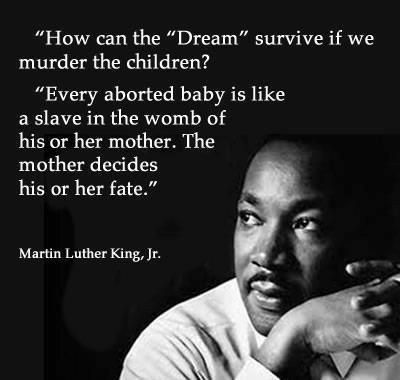
devalue the lives of the unborn, creating their own definitions of humanity based on distorted views of morality. But the undeniable fact is that life begins at creation, and a human is created as soon as he or she is conceived. God is present at our creation; He is, in fact, our Creator. Our value as human beings created in His image is conceived even before we are.
For the Christian, abortion is not a matter of a woman’s right to choose. It is a matter of the life or death of a human being made in God’s image (Genesis 1:26-27; 9:6).
Since Roe v. Wade has been overturned, it is said to be “barbaric.” But what is the killing of our young – before they even have a chance to live? How civil is that?
Please feel welcome to leave any questions or comments below.
Blessings!
This article only scratches the surface of a complex and deeply spiritual issue. For a fuller exploration, I invite you to watch my recent teaching on What Does the Bible Say About Abortion. In this message, I walk through the Scriptures in greater depth and share practical insights for Christians navigating today’s culture.
And if you’re pressed for time, here’s a short summary that highlights the key points from the same teaching.
